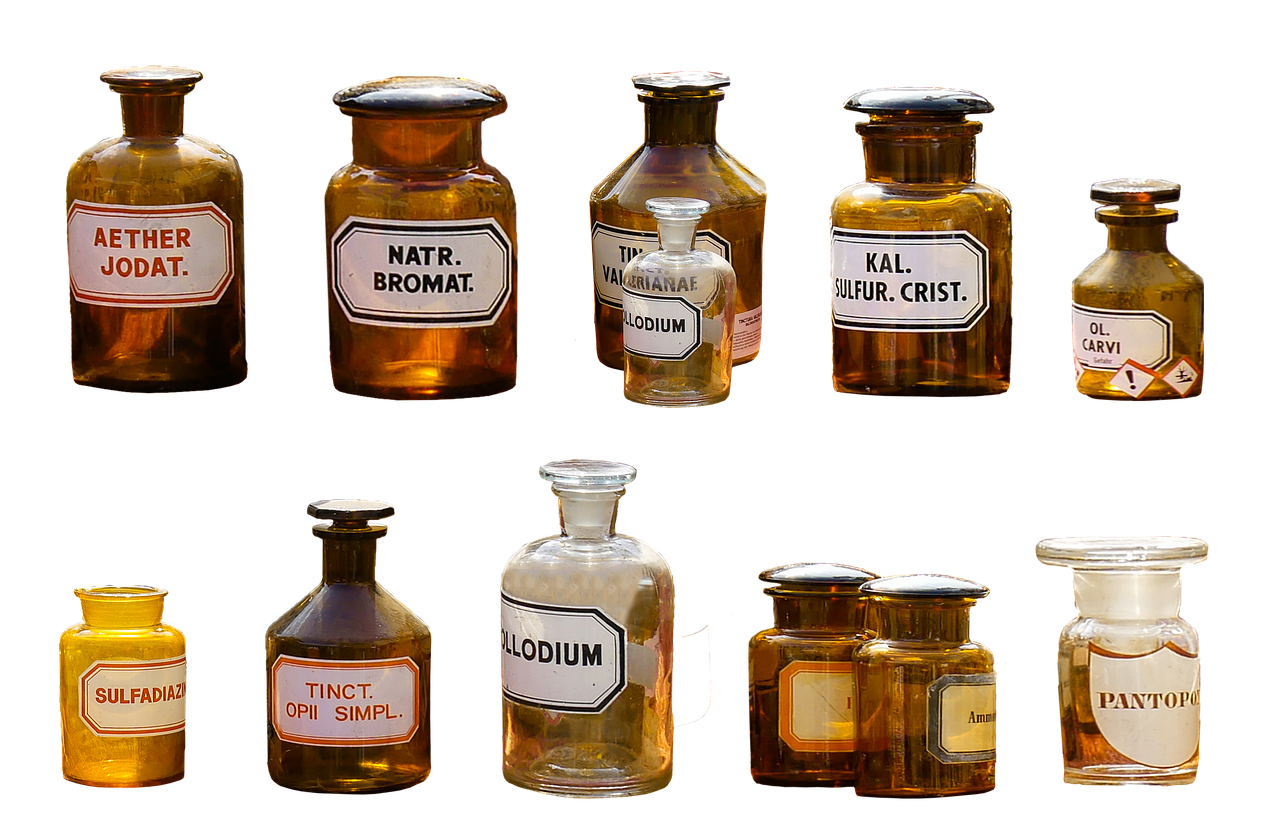This article delves into the essential role of Coenzyme Q10 (CoQ10) in promoting heart health and enhancing energy production. You will discover its numerous benefits, dietary sources, and the overall impact it can have on your well-being.
What is CoQ10?
CoQ10 is a naturally occurring antioxidant found in every cell of the body. It plays a crucial role in the production of energy within the mitochondria, the powerhouse of the cell. This compound is vital for maintaining optimal heart health and overall vitality.
Benefits of CoQ10 for Heart Health
- Improved Blood Vessel Function: CoQ10 enhances the function of blood vessels, promoting better circulation.
- Reduced Blood Pressure: Studies suggest that CoQ10 can help lower blood pressure, offering a natural remedy for hypertension.
- Enhanced Cardiovascular Performance: Regular intake of CoQ10 can improve heart function and reduce the risk of heart-related issues.
How CoQ10 Reduces Oxidative Stress
Oxidative stress is a significant contributor to heart disease. CoQ10 acts as a potent antioxidant, neutralizing harmful free radicals and protecting heart cells from damage.
Energy Production and CoQ10
CoQ10 is integral to the production of adenosine triphosphate (ATP), the energy currency of the cell. By facilitating ATP production, CoQ10 plays a pivotal role in maintaining energy levels throughout the body.
Food Sources of CoQ10
Incorporating CoQ10-rich foods into your diet can help maintain adequate levels. Some excellent sources include:
- Fatty fish like salmon and mackerel
- Organ meats such as heart and liver
- Whole grains
Who Should Consider CoQ10 Supplementation?
Certain populations, particularly older adults and individuals with specific health conditions, may greatly benefit from CoQ10 supplementation to support heart health and energy production.
Conclusion: The Importance of CoQ10 for Heart Health
CoQ10 is a vital nutrient that supports not only heart health but also overall energy production. Understanding its benefits and sources can empower individuals to make informed health choices.

What is CoQ10?
Coenzyme Q10 (CoQ10) is a vital antioxidant present in the human body, playing a significant role in cellular energy production and overall health. It is found in every cell and is particularly concentrated in the heart, liver, and kidneys. This powerful compound is essential for the production of adenosine triphosphate (ATP), the primary energy carrier in cells, which is crucial for maintaining various bodily functions.
CoQ10 is not just a mere supplement; it is a coenzyme that aids in the conversion of food into energy. As we age, our natural levels of CoQ10 decline, which can lead to decreased energy and a higher risk of cardiovascular issues. This decline emphasizes the need for individuals to consider their CoQ10 levels, especially those over 40 or those with specific health conditions.
Research has shown that CoQ10 may have several benefits for heart health. It is known to improve blood vessel function, reduce blood pressure, and enhance overall cardiovascular performance. By combating oxidative stress, CoQ10 protects heart cells from damage caused by free radicals, thus promoting better heart function.
CoQ10 plays a crucial role in the production of ATP, which is vital for energy levels. Its presence in the mitochondria allows for the efficient conversion of nutrients into energy, making it essential for those experiencing fatigue or low energy levels. A deficiency in CoQ10 can lead to significant drops in energy, highlighting its importance for maintaining optimal health.
To maintain adequate levels of CoQ10, incorporating certain foods into your diet is beneficial. Fatty fish (like salmon and mackerel), organ meats (such as liver and heart), and whole grains are excellent sources. For individuals with dietary restrictions, CoQ10 supplements may be necessary to ensure sufficient intake.
Particular populations, including older adults and those with heart conditions, may find CoQ10 supplementation beneficial. As natural levels decline with age, supplementation can help mitigate health issues, particularly regarding heart function and energy levels.
In summary, CoQ10 is a crucial nutrient that supports heart health and energy production. Understanding its benefits and sources can empower individuals to make informed health decisions, potentially leading to improved overall well-being.

Benefits of CoQ10 for Heart Health
CoQ10, or Coenzyme Q10, is increasingly recognized for its significant contributions to heart health. This powerful antioxidant plays a crucial role in the body, particularly in maintaining cardiovascular function and overall well-being. Below, we delve deeper into the specific benefits of CoQ10 for heart health, exploring its mechanisms and the impact it has on various cardiovascular conditions.
- Improved Blood Vessel Function: CoQ10 has been shown to enhance the function of blood vessels, promoting better circulation and oxygen delivery to the heart. This improvement can lead to a reduction in the risk of heart disease.
- Reduced Blood Pressure: Studies suggest that CoQ10 supplementation can help lower blood pressure levels, providing a natural alternative for those looking to manage hypertension effectively.
- Enhanced Cardiovascular Performance: By supporting the production of energy in heart cells, CoQ10 contributes to improved overall cardiovascular performance, which is essential for physical activity and endurance.
Moreover, CoQ10’s role as an antioxidant helps to combat oxidative stress, a significant contributor to heart disease. By neutralizing free radicals, CoQ10 protects heart cells from damage, thereby promoting healthier heart function.
Incorporating CoQ10 into your daily regimen, whether through diet or supplementation, can be a proactive step towards enhancing heart health. Foods rich in CoQ10, such as fatty fish, organ meats, and whole grains, can help maintain adequate levels of this vital nutrient in the body. For individuals with specific health conditions or those experiencing age-related declines in CoQ10 levels, supplementation may be particularly beneficial.
In conclusion, the benefits of CoQ10 for heart health are substantial. From improving blood vessel function to reducing blood pressure and enhancing cardiovascular performance, CoQ10 stands out as a key player in supporting a healthy heart. As always, it is advisable to consult with a healthcare professional before starting any new supplementation.
How CoQ10 Reduces Oxidative Stress
Oxidative stress plays a significant role in the development of various chronic diseases, particularly heart disease. This condition arises when there is an imbalance between the production of free radicals and the body’s ability to neutralize them with antioxidants. When free radicals accumulate, they can cause extensive damage to cells, proteins, and even DNA, leading to inflammation and contributing to the progression of cardiovascular issues.
Coenzyme Q10 (CoQ10) is a powerful antioxidant that helps combat oxidative stress effectively. By neutralizing free radicals, CoQ10 protects heart cells from oxidative damage, thereby promoting better heart function. Research has shown that individuals with lower levels of CoQ10 may experience higher levels of oxidative stress, which can exacerbate heart-related conditions.
One of the primary mechanisms by which CoQ10 exerts its protective effects is through its role in mitochondrial function. Mitochondria are the energy-producing organelles in cells, and they are also a source of free radicals. CoQ10 facilitates the production of adenosine triphosphate (ATP), the energy currency of the cell, while simultaneously reducing the generation of free radicals during this process. This dual action not only enhances energy production but also minimizes oxidative stress.
Moreover, studies have indicated that CoQ10 supplementation can lead to significant improvements in heart health markers. For instance, patients with heart disease who supplemented with CoQ10 showed improved endothelial function, reduced blood pressure, and enhanced overall cardiovascular performance. These benefits underscore the importance of maintaining adequate levels of CoQ10, especially for individuals at risk of or managing heart disease.
In summary, CoQ10 plays a crucial role in reducing oxidative stress by acting as a potent antioxidant, protecting heart cells, and supporting overall cardiovascular health. Incorporating CoQ10 through diet or supplementation can be a proactive step towards better heart health.
Understanding Oxidative Stress
is crucial for recognizing its impact on our health, particularly in relation to chronic diseases and aging. Oxidative stress arises when there is an imbalance between free radicals—unstable molecules that can cause cellular damage—and antioxidants, which are compounds that neutralize these harmful molecules. This imbalance can lead to significant cellular damage and inflammation, contributing to various health issues.
Free radicals are generated through normal metabolic processes and external factors such as pollution, radiation, and smoking. When the body cannot adequately counteract these free radicals with sufficient antioxidants, oxidative stress occurs. This condition can result in damage to DNA, proteins, and lipids, which may accelerate the aging process and increase the risk of developing chronic diseases like heart disease, diabetes, and cancer.
Antioxidants play a vital role in protecting the body from the detrimental effects of oxidative stress. They are found in various foods, particularly fruits and vegetables, which are rich in vitamins C and E, as well as other phytochemicals. Incorporating a diet high in antioxidants can help combat oxidative stress and promote overall health.
| Sources of Antioxidants | Benefits |
|---|---|
| Fruits (e.g., berries, oranges) | Rich in vitamins and phytochemicals that fight free radicals |
| Vegetables (e.g., spinach, kale) | High in fiber and essential nutrients that support cellular health |
| Nuts and seeds | Provide healthy fats and antioxidants |
In summary, understanding oxidative stress is essential for maintaining health. By recognizing the sources of free radicals and the importance of antioxidants, individuals can take proactive steps to reduce oxidative stress and support their overall well-being.
CoQ10’s Role as an Antioxidant
Coenzyme Q10, commonly known as CoQ10, is a vital compound produced naturally by the body. It serves as a powerful antioxidant, playing a crucial role in protecting cells from oxidative damage caused by free radicals. Free radicals are unstable molecules that can lead to cellular injury and contribute to various health issues, including heart disease and aging.
As a potent antioxidant, CoQ10 actively scavenges free radicals, reducing oxidative stress and promoting cellular health. This process is essential for maintaining the integrity of heart cells and supporting overall cardiovascular function. Research indicates that individuals with higher levels of CoQ10 tend to experience better heart health, as this nutrient aids in the repair and regeneration of damaged cells.
Moreover, CoQ10’s antioxidant properties extend beyond the heart. It supports various bodily functions by enhancing mitochondrial efficiency, which is crucial for energy production. By mitigating oxidative damage, CoQ10 not only protects the heart but also boosts energy levels, ultimately contributing to improved overall well-being.
Incorporating CoQ10 into your diet through food sources such as fatty fish, nuts, and whole grains can help maintain adequate levels. Additionally, for those who may require extra support, CoQ10 supplements are available and can be particularly beneficial for older adults or individuals with specific health conditions.
In conclusion, CoQ10’s role as an antioxidant is fundamental in promoting heart health and enhancing energy production. By reducing oxidative stress and protecting cells from damage, CoQ10 contributes significantly to maintaining overall health and vitality.
CoQ10 and Blood Pressure Regulation
Coenzyme Q10, commonly known as CoQ10, has garnered attention in recent years for its potential role in regulating blood pressure. This naturally occurring antioxidant is not only essential for energy production but also plays a significant part in maintaining cardiovascular health.
Research indicates that CoQ10 supplementation can help lower blood pressure, providing a natural approach to managing hypertension. Individuals suffering from high blood pressure may find that incorporating CoQ10 into their routine can lead to improved heart function and overall well-being. The mechanism behind this involves CoQ10’s ability to enhance the function of the endothelium, the inner lining of blood vessels, which is crucial for regulating blood flow and pressure.
| Study | Findings |
|---|---|
| Clinical Trial 1 | Participants experienced a significant reduction in systolic and diastolic blood pressure after 12 weeks of CoQ10 supplementation. |
| Clinical Trial 2 | CoQ10 was found to improve endothelial function, leading to better blood flow and lower blood pressure levels. |
In addition to its direct effects on blood pressure, CoQ10 also helps combat oxidative stress, which can contribute to hypertension. By neutralizing free radicals, CoQ10 protects heart cells from damage, thereby promoting better cardiovascular health.
It is important to note that while CoQ10 can be beneficial, individuals should consult with a healthcare provider before starting any supplementation, especially if they are already on medications for blood pressure management. This ensures a safe and effective approach to incorporating CoQ10 into their health regimen.
In conclusion, CoQ10 presents a promising option for those looking to manage their blood pressure naturally. Its dual role in enhancing energy production and supporting heart health makes it a valuable addition to a heart-healthy lifestyle.

Energy Production and CoQ10
Coenzyme Q10, commonly known as CoQ10, is a vital component in the realm of cellular energy production. It functions primarily within the mitochondria, the powerhouse of the cell, where it plays a crucial role in the synthesis of adenosine triphosphate (ATP), the energy currency that fuels various cellular processes. Without adequate levels of CoQ10, the efficiency of ATP production can significantly decline, leading to reduced energy levels and overall vitality.
How CoQ10 Enhances ATP Production
CoQ10 is integral to the electron transport chain, a series of reactions that occur within the mitochondria. During this process, nutrients from the food we consume are converted into ATP through a series of redox reactions. This conversion is not only essential for energy production but also for maintaining cellular health and function. When CoQ10 levels are optimal, the body can efficiently produce ATP, thus enhancing physical performance and energy levels.
CoQ10 Deficiency and Fatigue
A deficiency in CoQ10 can lead to significant fatigue, muscle weakness, and a general lack of energy. This is particularly evident in older adults, as natural levels of CoQ10 tend to decline with age. Individuals experiencing chronic fatigue or those with specific health conditions may find that supplementing with CoQ10 can help restore energy levels and improve overall well-being.
Food Sources of CoQ10
- Fatty fish (e.g., salmon, mackerel)
- Organ meats (e.g., liver, heart)
- Whole grains and nuts
Conclusion
Understanding the role of CoQ10 in energy production is essential for anyone looking to enhance their overall health. By ensuring adequate intake of this vital nutrient through diet or supplementation, individuals can support their energy levels and promote better cellular function.
How CoQ10 Enhances ATP Production
Coenzyme Q10, commonly known as CoQ10, plays a crucial role in the production of adenosine triphosphate (ATP), the primary energy carrier in cells. ATP is vital for numerous cellular processes, including muscle contraction, nerve impulse propagation, and biosynthesis. Without adequate ATP levels, the body can experience fatigue and decreased performance.
CoQ10 is primarily located in the mitochondria, often referred to as the “powerhouses” of the cell. Here, it facilitates the conversion of nutrients from the food we consume into ATP through a series of biochemical reactions known as the electron transport chain. This process not only generates ATP but also helps to maintain the overall energy balance within the cells.
- Energy Production: CoQ10 assists in the efficient transfer of electrons, which is essential for ATP synthesis.
- Enhanced Mitochondrial Function: By supporting mitochondrial health, CoQ10 can improve overall energy levels and endurance.
- Reduction of Fatigue: Adequate levels of CoQ10 can help combat feelings of tiredness, especially in individuals with low energy levels.
Research has shown that individuals with CoQ10 deficiency may experience significant fatigue and reduced exercise capacity. This deficiency can be particularly common in older adults or those with certain health conditions. Supplementing with CoQ10 may help restore optimal levels, thereby enhancing ATP production and improving energy levels.
In conclusion, CoQ10 is not just a supplement; it is a vital component of our cellular energy production system. By enhancing ATP synthesis, CoQ10 plays a significant role in boosting energy levels and overall vitality, making it an important nutrient for maintaining health and well-being.
CoQ10 Deficiency and Fatigue
Coenzyme Q10, or CoQ10, is a vital compound in our bodies, playing a crucial role in energy production at the cellular level. When the body lacks sufficient levels of CoQ10, individuals may experience significant fatigue and a marked decrease in energy levels. This deficiency can lead to various health issues, making it imperative to understand the importance of maintaining adequate CoQ10 levels.
CoQ10 is primarily found in the mitochondria, the powerhouse of cells, where it assists in the production of adenosine triphosphate (ATP). ATP is the energy currency of the cell, essential for powering various biological processes. A deficiency in CoQ10 can disrupt this energy production, leading to feelings of tiredness, weakness, and overall lethargy.
Moreover, studies have shown that individuals with chronic conditions such as heart disease, diabetes, and neurodegenerative disorders often exhibit lower levels of CoQ10. This deficiency not only contributes to fatigue but may also exacerbate the symptoms of these conditions. For instance, patients with heart failure who are supplemented with CoQ10 often report improved energy levels and enhanced quality of life.
- Symptoms of CoQ10 Deficiency:
- Fatigue
- Muscle weakness
- Decreased exercise tolerance
- Frequent illnesses
To combat CoQ10 deficiency, incorporating CoQ10-rich foods into the diet is essential. Foods such as fatty fish, organ meats, and whole grains are excellent sources. Additionally, for those who may struggle to obtain adequate CoQ10 from dietary sources, supplementation can be an effective option.
In conclusion, recognizing the signs of CoQ10 deficiency and understanding its link to fatigue is crucial for maintaining optimal energy levels and overall health. By ensuring sufficient intake of this essential nutrient, individuals can enhance their vitality and improve their quality of life.

Food Sources of CoQ10
Coenzyme Q10 (CoQ10) is an essential nutrient that plays a crucial role in energy production and heart health. One effective way to ensure adequate levels of CoQ10 in your body is by incorporating specific foods into your diet. Below are some of the best sources of CoQ10 that can help you maintain optimal levels.
- Fatty Fish: Fish such as salmon, mackerel, and sardines are not only rich in omega-3 fatty acids but also serve as excellent sources of CoQ10. Including these fish in your diet can support heart health and enhance energy levels.
- Organ Meats: Organ meats, particularly the heart, liver, and kidneys, are some of the richest sources of CoQ10. These nutrient-dense foods can significantly contribute to your daily intake.
- Whole Grains: Whole grains like wheat germ, oats, and brown rice contain moderate amounts of CoQ10. Incorporating whole grains into your meals can provide additional health benefits, including fiber and essential nutrients.
- Nuts and Seeds: Nuts such as peanuts, pistachios, and sesame seeds are also good sources of CoQ10. Snacking on these can help boost your intake while providing healthy fats and protein.
- Vegetables: Some vegetables, including spinach, broccoli, and cauliflower, contain CoQ10 in smaller amounts. Adding these greens to your meals can enhance your overall nutrient profile.
Incorporating a variety of these CoQ10-rich foods into your diet can help maintain adequate levels of this vital nutrient. While dietary sources are beneficial, it’s important to note that some individuals may require supplementation, especially if they have specific health conditions or dietary restrictions. Always consider consulting with a healthcare provider for personalized advice.
Top Food Sources of CoQ10
Coenzyme Q10 (CoQ10) is a vital nutrient that plays a significant role in maintaining heart health and boosting energy levels. To ensure adequate levels of this essential compound, incorporating CoQ10-rich foods into your diet is crucial. Below, we explore some of the top food sources of CoQ10 that can help you achieve optimal health.
- Fatty Fish: Fish such as salmon and mackerel are among the richest sources of CoQ10. These fish not only provide high-quality protein but also healthy omega-3 fatty acids, which are beneficial for heart health.
- Organ Meats: Organ meats, particularly heart and liver, are excellent sources of CoQ10. They are nutrient-dense and can significantly contribute to your daily intake of this important antioxidant.
- Whole Grains: Foods like wheat germ and oats contain moderate amounts of CoQ10. Including whole grains in your diet can not only provide energy but also support overall cardiovascular health.
- Nuts and Seeds: Some nuts, particularly peanuts and sesame seeds, are good sources of CoQ10. They also provide healthy fats and fiber, making them a great addition to your diet.
- Vegetables: Certain vegetables, such as spinach and broccoli, contain small amounts of CoQ10. While they may not be as rich in CoQ10 as animal products, they are still important for a balanced diet.
Incorporating these foods into your meals can help ensure you receive enough CoQ10 to support your heart health and energy production. Whether you enjoy a grilled salmon fillet or a hearty liver pâté, there are plenty of delicious options to choose from.
For those who may have dietary restrictions or specific health conditions, CoQ10 supplements can also be considered. However, it is always advisable to consult with a healthcare provider before starting any supplementation.
Conclusion: Understanding the food sources of CoQ10 is essential for maintaining optimal health. By including a variety of these foods in your diet, you can support your heart and enhance your energy levels effectively.
Supplements vs. Food Sources
When it comes to maintaining optimal levels of CoQ10 in the body, both dietary sources and supplements play essential roles. While natural food sources provide a range of nutrients, there are instances where supplementation becomes necessary, especially for individuals with specific health conditions or dietary restrictions.
| Food Sources of CoQ10 | Benefits |
|---|---|
| Fatty Fish (e.g., Salmon, Mackerel) | Rich in omega-3 fatty acids and CoQ10, promoting heart health. |
| Organ Meats (e.g., Heart, Liver) | High concentrations of CoQ10, beneficial for energy production. |
| Whole Grains (e.g., Wheat Germ) | Provide CoQ10 along with fiber and essential nutrients. |
While these foods can help maintain adequate CoQ10 levels, some individuals may find it challenging to obtain sufficient amounts through diet alone. For example, those who follow a strict vegetarian or vegan diet may not consume enough CoQ10-rich foods, making supplementation a more viable option.
Moreover, as we age, the body’s natural production of CoQ10 declines. This decrease can lead to various health issues, particularly concerning heart function and energy levels. In such cases, CoQ10 supplements can provide a convenient way to boost levels and support overall health.
In summary, while dietary sources of CoQ10 are beneficial, they may not be sufficient for everyone. Individuals with specific health conditions, dietary restrictions, or those experiencing age-related declines in CoQ10 levels should consider consulting a healthcare professional about the potential benefits of CoQ10 supplementation.

Who Should Consider CoQ10 Supplementation?
Coenzyme Q10 (CoQ10) is a powerful antioxidant that plays a crucial role in energy production and heart health. While it is naturally produced in the body, certain populations may require additional CoQ10 to maintain optimal health. This section explores who might benefit the most from CoQ10 supplementation.
- Older Adults: As people age, their natural levels of CoQ10 tend to decline. This decrease can contribute to various age-related health issues, particularly those affecting the heart. Supplementing with CoQ10 may help improve heart function, enhance energy levels, and reduce fatigue commonly associated with aging.
- Individuals with Heart Conditions: People diagnosed with heart diseases, such as congestive heart failure or coronary artery disease, may experience significant benefits from CoQ10 supplementation. Research suggests that CoQ10 can support heart muscle function, improve exercise capacity, and enhance overall cardiovascular health.
- Those on Statin Medications: Statins, commonly prescribed to lower cholesterol, can reduce natural CoQ10 levels in the body. Individuals taking these medications may consider CoQ10 supplements to counteract potential side effects, such as muscle pain and fatigue.
- Patients with Chronic Fatigue Syndrome: Chronic Fatigue Syndrome (CFS) can significantly impact quality of life. Some studies indicate that CoQ10 supplementation may help alleviate symptoms of fatigue and improve energy levels in individuals suffering from CFS.
- Athletes and Active Individuals: For those engaged in high levels of physical activity, CoQ10 may enhance exercise performance and recovery. By boosting ATP production, CoQ10 helps improve energy levels, endurance, and overall athletic performance.
In summary, while CoQ10 is beneficial for everyone, certain groups—such as older adults, those with heart conditions, and individuals on statin medications—may particularly benefit from supplementation. It is always recommended to consult with a healthcare provider before starting any new supplement regimen to ensure it is appropriate for individual health needs.
CoQ10 for Older Adults
is a crucial topic as it addresses the decline in natural Coenzyme Q10 levels that occurs with aging. This decline can significantly impact overall health, particularly heart function. As we age, the body’s ability to produce CoQ10 diminishes, which may lead to various health challenges, including decreased energy levels and increased risk of cardiovascular diseases.
Supplementation of CoQ10 can serve as a beneficial strategy for older adults. Research indicates that CoQ10 supplementation may help improve heart health by enhancing cardiovascular function and reducing oxidative stress. This antioxidant plays a vital role in protecting heart cells from damage caused by free radicals, thereby promoting better heart function.
Moreover, studies suggest that CoQ10 can assist in regulating blood pressure, providing a natural approach to managing hypertension. For older adults, maintaining healthy blood pressure levels is essential for reducing the risk of heart disease and stroke.
Another significant benefit of CoQ10 supplementation is its impact on energy levels. Many older adults experience fatigue and decreased vitality, which can be linked to lower CoQ10 levels. By boosting the availability of this nutrient, individuals may experience improved energy production at the cellular level, leading to enhanced overall well-being.
Incorporating CoQ10 through supplements can be particularly beneficial for older adults with existing health conditions, such as heart disease. These individuals may find that CoQ10 helps improve heart muscle function and supports overall cardiovascular health.
However, it is essential for older adults to consult with a healthcare provider before starting any new supplementation. While CoQ10 is generally safe, understanding potential interactions with medications and ensuring appropriate dosages is crucial for maximizing its benefits.
In conclusion, CoQ10 is a vital nutrient that supports heart health and energy production in older adults. By considering supplementation, individuals can take proactive steps towards maintaining their health and enhancing their quality of life.
CoQ10 for Individuals with Heart Conditions
Coenzyme Q10 (CoQ10) plays a crucial role in maintaining heart health, particularly for individuals diagnosed with heart conditions. Research has shown that CoQ10 supplementation may lead to significant improvements in heart function and overall cardiovascular health. This article will delve into the benefits of CoQ10 for those with heart diseases, outlining how it can support heart muscle function and enhance overall well-being.
- Improved Heart Muscle Function: CoQ10 is essential for energy production in heart cells. By enhancing mitochondrial function, CoQ10 helps the heart muscle generate the energy required for optimal performance.
- Enhanced Blood Flow: CoQ10 supplementation has been linked to improved endothelial function, which is vital for maintaining healthy blood vessels. This can lead to better blood flow and reduced strain on the heart.
- Reduction in Symptoms: Patients with heart disease often experience fatigue and decreased exercise tolerance. CoQ10 may help alleviate these symptoms, allowing for improved quality of life.
- Support in Heart Failure Management: Studies suggest that CoQ10 can be beneficial for individuals with heart failure, potentially improving heart function and reducing hospitalizations.
Furthermore, clinical studies have indicated that CoQ10 may assist in lowering blood pressure, providing a natural means to help manage hypertension, which is a common concern for those with heart conditions. By incorporating CoQ10 into their treatment regimen, patients may experience a reduction in medication side effects and an overall enhancement in their health.
In conclusion, individuals with heart conditions may find CoQ10 supplementation to be a valuable addition to their health strategy. Its potential benefits in supporting heart muscle function, enhancing blood flow, and improving overall cardiovascular health make it a noteworthy consideration for those seeking to manage their heart health effectively.

Potential Side Effects and Considerations
Coenzyme Q10 (CoQ10) is widely regarded as a safe supplement for many individuals. However, it is essential to recognize that some users may encounter mild side effects. Before initiating any supplementation, it is crucial to consult with a healthcare provider to ensure that it aligns with your health status and needs.
Understanding Possible Side Effects
- Gastrointestinal Issues: Some individuals might experience mild gastrointestinal discomfort, such as nausea, diarrhea, or upset stomach. These symptoms are usually temporary and may diminish with continued use.
- Headaches: A few users report headaches after starting CoQ10 supplementation. If headaches persist, it is advisable to consult with a healthcare professional.
- Fatigue: Although CoQ10 is known to boost energy levels, some individuals might feel fatigued during the initial phase of supplementation. This could be due to the body adjusting to increased energy production.
Drug Interactions
CoQ10 may interact with certain medications, particularly anticoagulants like warfarin. These interactions can affect how these medications work, potentially leading to complications. Therefore, it is vital to discuss any current medications with a healthcare provider before starting CoQ10.
Who Should Exercise Caution?
Individuals with specific health conditions, such as diabetes or those undergoing surgery, should approach CoQ10 supplementation with caution. Pregnant or breastfeeding women should also seek professional advice before using CoQ10.
In summary, while CoQ10 is generally safe for most people, awareness of potential side effects and interactions is essential. Always consult with a healthcare provider to ensure that CoQ10 supplementation is appropriate for your health profile.
Common Side Effects of CoQ10
Coenzyme Q10 (CoQ10) is widely recognized for its numerous health benefits, particularly in supporting heart health and energy production. However, as with any supplement, it is important to be aware of potential side effects. While CoQ10 is generally considered safe for most individuals, some may experience mild side effects upon starting supplementation.
- Gastrointestinal Discomfort: Some users report experiencing nausea, diarrhea, or stomach upset. These symptoms are typically mild and may improve as the body adjusts to the supplement.
- Headaches: A common complaint among new users is the occurrence of headaches. These can often be attributed to changes in energy levels or dosage adjustments.
- Fatigue: Interestingly, while CoQ10 is known for boosting energy, some individuals may initially feel fatigued as their body adapts to increased energy production.
It is important to note that these side effects are usually mild and tend to resolve with continued use. If side effects persist or worsen, it is advisable to consult a healthcare professional for guidance. They can provide personalized recommendations and assess whether CoQ10 is appropriate for your specific health needs.
In addition to these common side effects, individuals taking certain medications, such as blood thinners, should discuss potential interactions with their healthcare provider. This ensures safe and effective use of CoQ10 alongside other treatments.
In conclusion, while CoQ10 is a beneficial supplement for many, being aware of possible side effects can help users make informed decisions about their health. Starting with a lower dose and gradually increasing can often mitigate these effects, allowing individuals to enjoy the full benefits of CoQ10.
Interactions with Medications
Coenzyme Q10 (CoQ10) is a vital nutrient that plays a crucial role in energy production and heart health. However, it is important to be aware that CoQ10 may interact with certain medications, particularly blood thinners. Understanding these interactions is essential for anyone considering CoQ10 supplementation.
Why Discuss CoQ10 with Your Healthcare Provider?
Before starting any new supplement, including CoQ10, it is crucial to consult with a healthcare provider. This conversation is especially important for individuals on medications that affect blood clotting, such as:
- Warfarin (Coumadin)
- Clopidogrel (Plavix)
- Aspirin
CoQ10 has been shown to potentially affect the effectiveness of these medications, which can lead to complications if not monitored properly. The interaction may alter the anticoagulant effects, potentially increasing the risk of clotting or bleeding.
What Research Says About CoQ10 and Blood Thinners
Studies suggest that CoQ10 may improve the overall function of the cardiovascular system, but its impact on blood thinners is complex. For instance, CoQ10 may enhance the body’s ability to produce energy in heart cells, but it can also influence how blood thinners work. Therefore, it is essential to monitor blood levels and adjust medication dosages accordingly when starting CoQ10 supplementation.
Conclusion
In summary, while CoQ10 offers numerous health benefits, particularly for heart health, it is essential to discuss its use with a healthcare provider, especially for those on blood thinners. This proactive approach ensures safe and effective management of health conditions while maximizing the benefits of CoQ10 supplementation.

Conclusion: The Importance of CoQ10 for Heart Health
CoQ10, or Coenzyme Q10, is an essential nutrient that plays a critical role in maintaining heart health and boosting energy production. This article delves into the significance of CoQ10, its numerous benefits, and the food sources that can help individuals incorporate this vital nutrient into their diets.
Understanding CoQ10
CoQ10 is a naturally occurring antioxidant found in every cell of the body, primarily in the mitochondria, where it aids in the production of adenosine triphosphate (ATP), the energy currency of the cell. This nutrient is not only crucial for energy production but also plays a significant role in protecting the heart from oxidative stress.
Benefits of CoQ10 for Heart Health
- Improved Blood Vessel Function: CoQ10 supports the health of blood vessels, enhancing circulation and overall cardiovascular performance.
- Lower Blood Pressure: Studies show that CoQ10 supplementation can contribute to reduced blood pressure levels, providing a natural method for managing hypertension.
- Oxidative Stress Reduction: By neutralizing free radicals, CoQ10 helps protect heart cells from damage, promoting better heart function.
Energy Production and CoQ10
The role of CoQ10 extends beyond heart health; it is vital for energy production. As a key player in ATP synthesis, CoQ10 helps convert nutrients into usable energy, which is essential for maintaining stamina and vitality.
Food Sources of CoQ10
Incorporating CoQ10-rich foods into your diet is an effective way to ensure adequate levels of this nutrient. Some of the best sources include:
- Fatty fish (such as salmon and mackerel)
- Organ meats (like heart and liver)
- Whole grains and nuts
In conclusion, CoQ10 is a vital nutrient that supports both heart health and energy production. By understanding its benefits and incorporating CoQ10-rich foods into your diet, you can make informed decisions to enhance your overall health and well-being. For those who may need additional support, consulting with a healthcare provider about CoQ10 supplementation could be beneficial.







